- Home
- Anne McCaffrey
Second Wave Page 2
Second Wave Read online
Page 2
Sesseli shook her head. “I don’t think so.”
“I assure you, Sesseli…” Elviiz began, but the little girl kept shaking her head.
“It shifted, but something made it shift.”
“Are we talking vampires here? Walking dead maybe?” Jalonzo asked matter-of-factly.
“Jalonzo, don’t scare the niña,” Abuelita said. “Such things are common in those games you play, but they are not real things. You are a brilliant student of the sciences, and you know such creatures are impossible and imaginary.”
Jalonzo shrugged. “Perhaps, Abuelita, but such stories often have some basis in fact or actual events. Misinterpreted or misreported, no doubt, but not imaginary. We have had so many deaths, and the burials were so hasty, the bodies unexamined for fear of contamination.” He leaned forward, widening his eyes and saying in a deep, quavery voice, “What if some who were buried were not dead, and dug their way up from the graves, clawing their fingers to the bone, maddened by what they experienced and their effort to survive, perhaps deranged from lack of oxygen while entombed with the dead?”
“Stop it, Jalonzo,” Khorii said. “It’s not true that the dead were unexamined. As you very well know, my parents and I and other Linyaari decontaminated each corpse before it was buried, and as you also know, that involved close personal contact on our parts. And we know death from life.”
Abuelita said quickly, “He meant no disrespect, of course, Khorii. We are eternally grateful for what you and your people, particularly your parents, have done for us, and I weep for the sacrifices they made to save us. With the resilience of youth my grandson has already forgotten that he laid to rest friends among the dead, and tries with his stories to create the false drama and fear that the young so inexplicably enjoy.”
“He gave me goose bumps,” Hap said appreciatively.
“Now I suggest that we return to our beds. Niña, if you wish, you may sleep with me tonight. We should switch your room to one overlooking the interior courtyard instead of the square.” The interior courtyard was paved for sporting activities, so no bodies had been interred there.
Sesseli shook her head. “No, but can I borrow Khiindi, Khorii?”
“I doubt he’ll object,” Khorii replied, looking for her lifelong feline companion. He was on no one’s lap, nor was he licking the dregs of chocolate from anyone’s cup. She called him, and he did not come, but that was no cause for alarm. Khiindi was an entity unto himself and chose where he wanted to be. If her request did not interfere unduly with his own agenda, he would come. Otherwise, she had to wait until he finished what he was doing.
He had been a birthing present to her from the regent of Makahomia, Nadhari Kando, aunt of the future high priestess Miw-Sher and former security chief for Khorii’s human Great-uncle Hafiz Harakamian, patriarch of the mighty House Harakamian empire. On a visit to Makahomia with Captain Becker, Nadhari had renewed her family alliances and Roadkill had formed alliances of his own with some of the beautiful and revered Makahomian Temple Cats. Khiindi was believed to be an offspring of one such union.
When Khiindi failed to reveal himself, Khorii rose to look for him. She finally found him crouched, tail bushed and fur on end, under the snooker table. He was glaring up at one of the nicho-framed grotesque masks, and growling menacingly.
In Khiindi’s opinion, something was terribly wrong.
Chapter 2
Khorii reached under the table and retrieved Khiindi, something that was not always the safest thing to do at times like this. But, instead of scratching her or wriggling loose, now he tried to burrow his nose under her arm. He was quivering with fear, the poor little cat. The mask had frightened him. Khorii stroked him and studied the mask from a distance. Keeping her distance was prudent, since when she tried to get closer, Khiindi’s claws dug into her.
The piece was made of some sort of clay. Like most of the other artwork she had seen in the city, it was painted in bright shades—red, ochre, and chartreuse with its googly eyes outlined in black and the red-tipped teeth a ferocious white. She was only starting to understand the human idea of art and aesthetics, and knew that it didn’t all have to be pretty. But why would anybody want to live with such a thing as the mask?
Clearly, Khiindi shared her taste in art in this case. The cat hissed again, then buried his face in Khorii’s mane.
Khorii took the hint and moved away from the ugly, though vibrant, piece of art.
Returning to the table, she told Sesseli, “I think Khiindi will be as glad to have you as you will be to have him, but who will keep me safe? May I stay with you, too?” She wasn’t sure why she made the offer. Maybe it was just something about the atmosphere, by which she did not mean the mixture of elements comprising the air. Many Standard months had passed since this planet was cleared of plague. The dead had been laid to rest, and the living had tried to resume some semblance of their previous lives. But tonight, the air felt heavy with a sense of foreboding and almost weighted down with fear.
Which was strange, because she had never been uneasy like this before, even when the plague had been active everywhere on the planet. There was sadness in the collective thought-forms of the living inhabitants, of course, and anxiety about the future, but certainly not fear, not since they’d stopped the plague and cleansed reasonable living space for the survivors. The city had been remarkably calm, considering what had happened here. The need for the survivors to escape contamination had kept looting under control, especially after some initial incidents when looters had dropped dead with their booty still in their arms. Even the thieves were keeping out of trouble after a few events like that.
Until the arrival of the Linyaari, the living had not known who was safe and who was not, and so had not formed the mobs or roving bands of thugs Khorii had seen on vids filmed after other disasters. Even after the Linyaari arrived, much of the planet was still quite dangerous, so people stayed in areas they absolutely knew were safe.
There were so few people remaining that there were uses for every one, and most people could find some purpose they could fill better than someone else, even though almost all of the survivors were either under the age of fourteen or much older by human standards, in their late fifties and up.
Because of Khorii, the Mana’s crew was more diverse in age. She had been able to spare them from contacting the plague, or had been able to heal them if they caught it.
So although this was a sad place, it was one where hope as well as worry about the future now flourished. The amorphous fear scenting the air was something new to Khorii, and hard experience had taught her not to disregard her perceptions.
But she didn’t see what she could do about it now except to accompany a scared little girl to bed.
Sesseli was glad for the offer of Khorii’s presence. In the end, she, Khorii, and Khiindi all returned to Khorii’s room rather than Sesseli’s because the room was bigger, and Khiindi’s food dishes and box were there.
Before they parted, Jalonzo said, “I am sorry, little one, for my silly story. I did not mean to frighten you. In the past such tales have been entertaining to me and my friends. But I believe you when you say that you saw something out of the ordinary. So, if you stay with Khorii tonight, I myself will sleep in your room in order to be alert for any other strange occurrences in the cemetery.”
Elviiz said, “And I will be outside the door of Khorii’s room, to make sure no harm comes to you.”
Sesseli managed a small smile of thanks.
And all of them went their separate ways to bed.
Khorii and Sesseli should have fit easily into the single bed in Khorii’s room, since Sesseli was small and Khorii slightly built. The real problem with making enough room was that Khiindi immediately plopped down between them and somehow nudged each girl so expertly that they were lying with part of their spines hanging over the edge of the bed while Khiindi stretched his full horizontal length in the middle. His front paws and snout touched Sesseli’s middle, but
he resisted any attempt on her part to draw him closer. His tail and his back paws touched Khorii’s waist. He snored and drooled and purred when touched, but his claws kneaded in and out, pretending bliss but actually guarding his territory. Khorii felt herself slipping over the side of the bed one time too many and finally picked up the bed-hogging cat and tossed him off the bed. Then, very quickly, she turned over so that her backside was to the middle of the bed, covering most of the warm spot Khiindi had created for himself. Had she not done so, she knew from long experience that he would jump back up and resume his position in the middle before she could lay her head down again.
Khiindi settled for mewing indignantly and leaping over her to land on Sesseli. The child, already fast asleep, squeaked with surprise, then draped her arm across the furry fraud and cuddled him close. It was very warm with the two girls and the even warmer cat so close together. Corazon was a very warm place already. There were fans, of course, and there had been central cooling at one time but it had broken down during the plague, and nobody still living knew how to fix it.
If Uncle Joh hadn’t had to leave, he could have fixed it, Khorii knew. He could fix anything. Hap Hellstrom was good at fixing things, too, but after looking at the system, he decided it would take some research to do the job right, and he preferred to spend his time discussing vaccines and plague-cleansing techniques with Jalonzo. So the dorm was a bit too warm for true comfort.
However, now that the rainy season was upon them, it was a little cooler, though still steamy and clammy.
Khorii slept for three blissful hours before she was awakened by a rhythmic tapping on the door. It was Elviiz. He always used the “shave and a haircut” tap handed down to him from his father, Maak, who had learned it from Uncle Joh and treasured it as a little-known ephemeral item of human communication undocumented in computer files or any other he had accessed. Sometimes Khorii marveled at how easily Maak was impressed, but it was kind of sweet, really, when it wasn’t irritating.
She reluctantly rose again, sure that Khiindi would reclaim the middle of the bed in her absence, and cracked the door open, whispering, “What?”
“Are you well?” he asked. “No further disturbances?”
“Not until now, no,” she said pointedly.
“Then I will inquire after Jalonzo and ascertain whether he is still in Sesseli’s room, or whether, perhaps unable to sleep, he has decided to resume his work in the laboratory.”
“Elviiz, it’s the middle of the night,” she said. Night, of course, meant nothing on shipboard for Khorii, or indeed ever for Elviiz, but dirtside for most people the nighttime hours were strictly reserved for sleeping. “Why would he do that?”
“I do not know that he has,” Elviiz said, “but my auditory sensors have detected unusual sounds from that vicinity.”
She should have known that Elviiz would not have awakened her for frivolous reasons. Androids had to really work at frivolity, and it seemed to take more maturity than Elviiz had for them to be even mildly frivolous. Certainly, Elviiz had tried his share of humorous comments, but most had fallen flat. The android more often tended to be alarmingly sincere. He didn’t play pranks. He didn’t intentionally make trouble. And his sophisticated sensors caused him to react to stimuli that would have gone unnoticed by most people—including her.
“I’ll go with you,” she said. “If someone who has the plague has invaded the laboratory looking for a cure, I’ll need to heal them and decontaminate the area before it is safe for Jalonzo to continue his work.”
She turned and bumped into little Sesseli, who had crept up behind her to listen. “I’m going, too,” she said.
Elviiz frowned at Khorii. “You are resting while you are here. It is against the rules for you to heal anyone or decontaminate anything until you are fully recharged.”
“I’m not an android or a robot,” she said reasonably. When Elviiz looked offended at the comparison, she added in a more conciliatory tone, “Though androids and robots are wonderful, of course. Elviiz, you don’t need to worry. I’m much younger and stronger than my parents. My horn is perfectly opaque, and I’m fine. It’s not like I’m going to do any mass healing. Probably nothing at all. But I can’t just let someone die right under my nose, can I? And none of us can afford for your research and Jalonzo’s to stop because you can’t use the lab.”
“Very well, do as you wish. But I will go first to ensure that it is safe for the merely organic.” Khorii knew that was in answer to her android crack, and she supposed she deserved it. She sighed.
Elviiz stomped off down the hall. She stuck her head all the way out the door, and said in a loud whisper, wishing as she sometimes did that she could thought-talk with Elviiz, “I’ll just check and see if Sesseli…”
She turned and bumped into the child, who had crept up behind her to listen. “I’m going, too,” Sesseli said.
On the bed, Khiindi yawned and stretched and sat up, his ears at an angle that showed he was not pleased with the disturbance. He began washing his paw.
Then, as she and Sesseli left the room, he hopped down from the bed and sprinted through the door ahead of them, down the corridor after Elviiz, who had started without them.
“Everything these days is a parade!” Khorii grumbled. It was good to have friends and relatives around but she got a bit weary of being constantly surrounded by them. When she accompanied the Linyaari rescue crews, there were always several people with her, so that she could tell them where the plague was and almost as importantly, because they needed to conserve their healing strength, where it was not. When an area was contaminated or a person was sick with the disease, she saw swarms of tiny blue lights or dots that nobody else perceived. Many Linyaari had a particular psychic talent aside from the normal communication skills they all acquired sometime around puberty. Khorii’s mother, Khornya to her own people and Acorna to her human friends and adopted family, had even as a child been able to tell the mineral content of an asteroid just by looking at it. As she grew older, Mother had begun to be able to sense what was contained in certain spaces. All Khorii got were these stupid plague dots. It was an important talent, she knew, and at first she was grateful to have been given such a useful gift and to be special because of it. Now she wished she could share the dubious honor.
It had been six whole Standard months after the plague began and three months since she had seen the plague around her parents that confirmed their suspicions that they were carriers. She was tired of being quite so special. If only a few other Linyaari—even one—had the same talent, she could rest without worrying about people dying in the meantime and could have some time to herself once in a while.
Up the hall, Elviiz stopped to knock on Jalonzo’s door. The tall boy, heavy but quite strong, came out to talk. He ran a hand through his long black hair, making it stand out at all angles. By the time Elviiz explained his presence, Jalonzo was out the door, barefoot and dressed in shorts and a light knit shirt.
Elviiz easily caught up with him, and the two disappeared around the corner to cross the shaded glass skyway that led to the science building. Khiindi bounced behind them until just before they turned, when he leaped onto Elviiz’s shoulder. The cat’s tail rounded the corner last of all.
Khorii hurried to catch up, and Sesseli tried to keep pace. Khorii turned, and said, “You can come. We may need your talent. But stay out of the lab and out of the way until I tell you it is safe.”
The little girl protested, “But I wouldn’t get the plague, Khorii. I’m too little. Jaya says only grown-ups who aren’t old people get the plague. It’s tied to hormonal development, you know,” she added sagely, without stumbling over the larger words. Sesseli was so cute and small it caught one off guard that she was also, for a human child, extremely precocious, which was the word humans used for someone whose intelligence and language skills were more advanced than most younglings in their age group.
“I do know, Sesseli, but plague is not the only dangerous p
ossibility. There could be bad men like Marl Fidd.”
“It couldn’t be him, could it?” Sesseli asked, so alarmed that Khorii was sorry she’d mentioned the name of the bullyboy who had come uninvited aboard the Mana with Captain Bates and had proceeded to blackmail, threaten, and assault the rest of the crew mentally or physically until Khorii finally got the better of him. “You killed him, didn’t you, Khorii?”
Khorii stopped and squatted beside the little girl, turning her so that they faced each other. “Killed him? Whatever would make you think a thing like that, youngling? You know my people do not believe in killing or harming others. Of course I didn’t kill him. Did you pick up some wish of mine that he was dead? Because I did wish it sometimes, when he hurt you or the others. But I didn’t kill him. I didn’t have to, though I wouldn’t be surprised to learn he has died since I left him.”
Tears welled up in the large blue eyes and ran down the soft pink baby cheeks. “I’m sorry, Khorii. I know you’re not mean. And you didn’t ever say you killed him, but when you didn’t say what happened, I hoped you had. He’s mean, no, he’s worse than mean, he’s des-pic-able.”
“Maybe so,” Khorii said. “But he’s not dead. At least not by my hand.” She stood again, taking Sesseli’s hand, and they turned the corner and stepped onto the sky bridge. Hail joined the rain in an attack on the geometrically patterned art of the colored glass forming the corridor. Khorii hoped the glass was as strong as it ought to be or the fist-sized balls might break it. Who would replace it then? Some elder experienced in the construction industry? How would the other kids know how to do anything they needed to do to survive without their parents or even business owners to teach them or do it for them? She really must speak to Abuelita about organizing the remaining elders to start teaching the youngsters their skills. While it was sad that the older kids most capable of working would lose the rest of their childhoods, the loss of their parents had accomplished that. Becoming more self-sufficient might let them stay on their homeworld at least instead of someplace like the school on Maganos Moonbase, or one of the horrible children’s camps still flourishing where her mother’s influence had yet to penetrate.

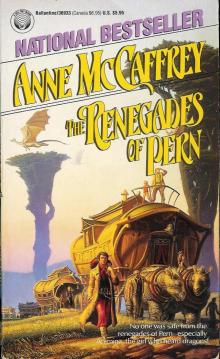 The Renegades of Pern (dragon riders of pern)
The Renegades of Pern (dragon riders of pern)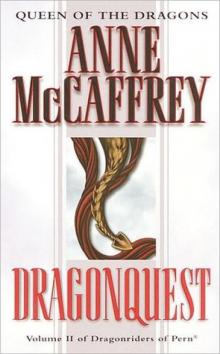 Dragonquest
Dragonquest Moreta (Dragonlady of Pern)
Moreta (Dragonlady of Pern)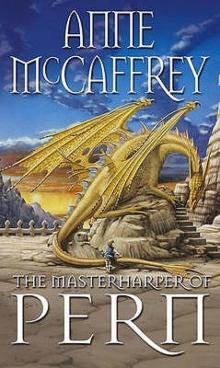 The Masterharper of Pern
The Masterharper of Pern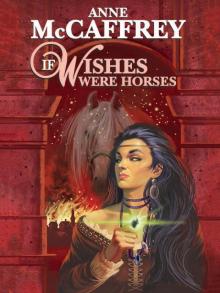 If Wishes Were Horses
If Wishes Were Horses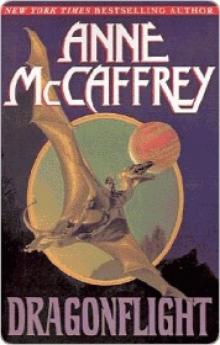 Dragonflight
Dragonflight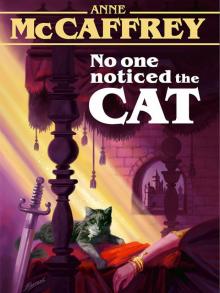 No One Noticed the Cat
No One Noticed the Cat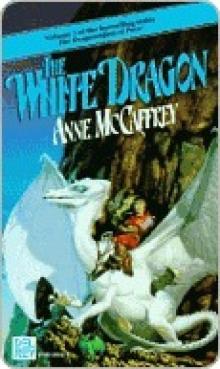 The White Dragon
The White Dragon A Gift of Dragons
A Gift of Dragons Harper Hall - Dragonsong
Harper Hall - Dragonsong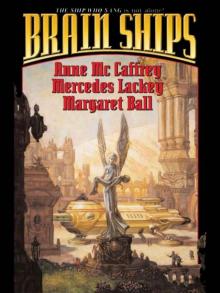 Brain Ships
Brain Ships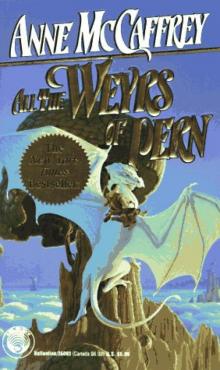 All The Weyrs of Pern
All The Weyrs of Pern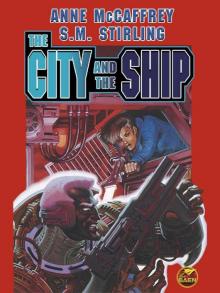 The City and the Ship
The City and the Ship The Chronicles of Pern: First Fall
The Chronicles of Pern: First Fall Acorna’s Search
Acorna’s Search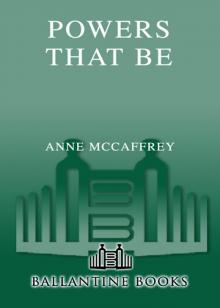 Powers That Be
Powers That Be Second Wave
Second Wave Chronicles of Pern (First Fall)
Chronicles of Pern (First Fall)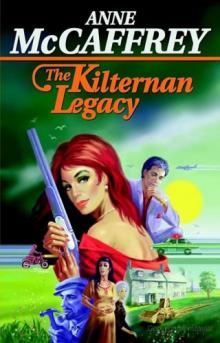 The Kilternan Legacy
The Kilternan Legacy Decision at Doona
Decision at Doona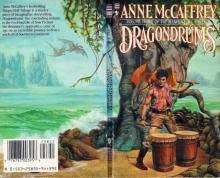 Dragondrums (dragon riders of pern)
Dragondrums (dragon riders of pern)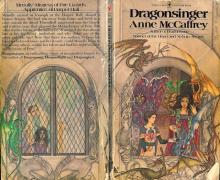 Dragonsinger (dragon riders of pern)
Dragonsinger (dragon riders of pern) The Master Harper of Pern
The Master Harper of Pern Crystal Singer
Crystal Singer Acorna’s People
Acorna’s People Pegasus in Flight
Pegasus in Flight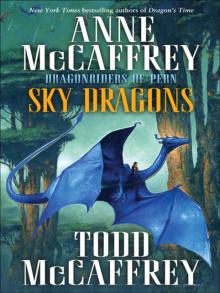 Sky Dragons Dragonriders of Pern
Sky Dragons Dragonriders of Pern Dragonriders of Pern 4 - Dragonsinger
Dragonriders of Pern 4 - Dragonsinger Treaty at Doona
Treaty at Doona Damia's Children
Damia's Children Stitch In Snow
Stitch In Snow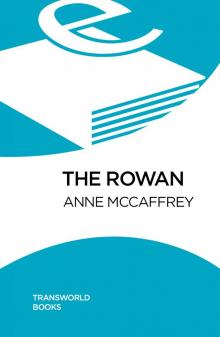 The Rowan
The Rowan Dinosaur Planet
Dinosaur Planet The Year of the Lucy
The Year of the Lucy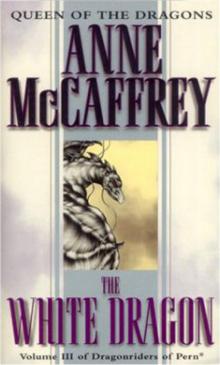 The White Dragon p-4
The White Dragon p-4 Power Lines
Power Lines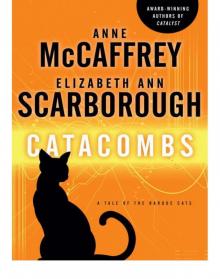 Catacombs
Catacombs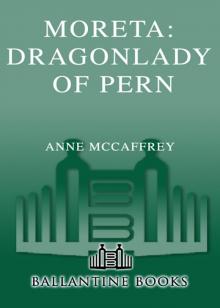 Moreta
Moreta Dragonsinger
Dragonsinger Crystal Line
Crystal Line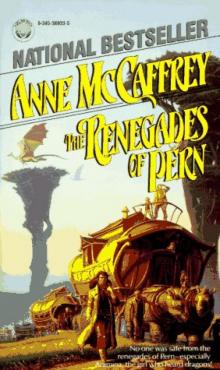 The Renegades of Pern
The Renegades of Pern Moreta - Dragonlady of Pern p-8
Moreta - Dragonlady of Pern p-8 Deluge
Deluge The Skies of Pern
The Skies of Pern Acorna's Quest
Acorna's Quest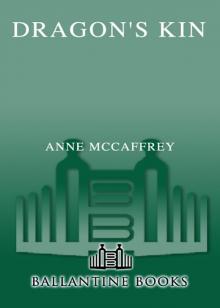 Dragon's Kin
Dragon's Kin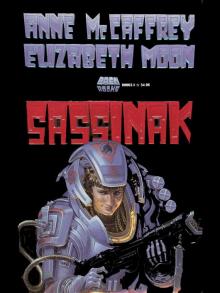 Sassinak
Sassinak![Crystal Universe - [Crystal Singer 03] - Crystal Line Read online](http://i1.bookreadfree.com/i1/03/31/crystal_universe_-_crystal_singer_03_-_crystal_line_preview.jpg) Crystal Universe - [Crystal Singer 03] - Crystal Line
Crystal Universe - [Crystal Singer 03] - Crystal Line Freedom's Landing
Freedom's Landing Acorna’s Quest
Acorna’s Quest Masterharper of Pern
Masterharper of Pern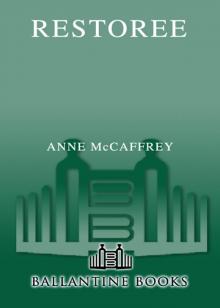 Restoree
Restoree Dolphins of Pern
Dolphins of Pern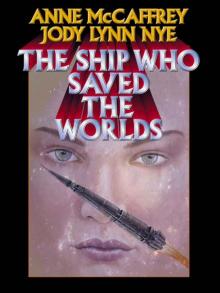 The Ship Who Saved the Worlds
The Ship Who Saved the Worlds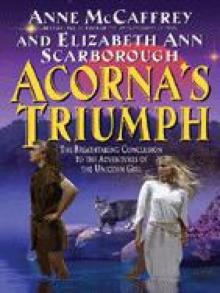 Acorna's Triumph
Acorna's Triumph Acorna's Rebels
Acorna's Rebels![[Acorna 08] - First Warning: Acorna's Children (with Elizabeth Ann Scarborough) Read online](http://i1.bookreadfree.com/i1/04/06/acorna_08_-_first_warning_acornas_children_with_elizabeth_ann_scarborough_preview.jpg) [Acorna 08] - First Warning: Acorna's Children (with Elizabeth Ann Scarborough)
[Acorna 08] - First Warning: Acorna's Children (with Elizabeth Ann Scarborough)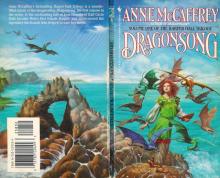 Dragonsong (dragon riders of pern)
Dragonsong (dragon riders of pern) Dragonriders of Pern 6 - Dragondrums
Dragonriders of Pern 6 - Dragondrums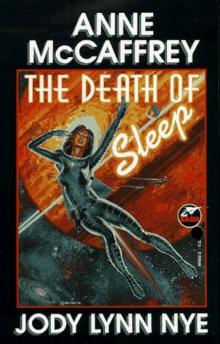 The Death of Sleep
The Death of Sleep Crisis On Doona
Crisis On Doona Nimisha's Ship
Nimisha's Ship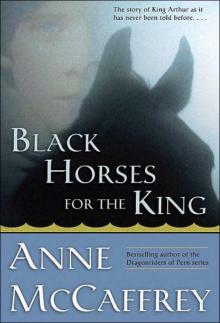 Black Horses for the King
Black Horses for the King Changelings
Changelings Freedom's Choice
Freedom's Choice The Lady
The Lady The Coelura
The Coelura Catalyst
Catalyst The Unicorn Girl
The Unicorn Girl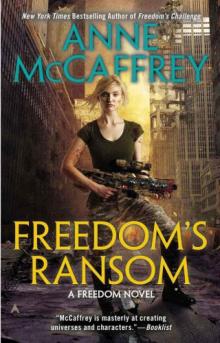 Freedom's Ransom
Freedom's Ransom Nerilka's Story
Nerilka's Story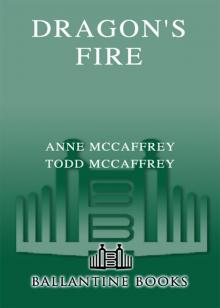 Dragon's Fire
Dragon's Fire Generation Warriors
Generation Warriors Lyon's Pride
Lyon's Pride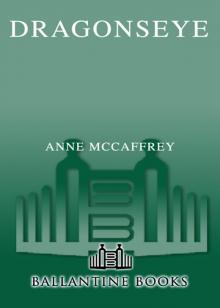 Dragonseye
Dragonseye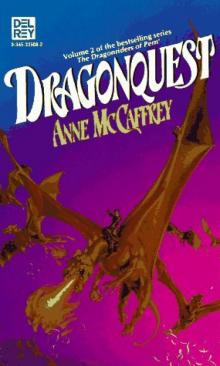 Dragon Quest
Dragon Quest Dragondrums
Dragondrums Dragonsong
Dragonsong The Mystery of Ireta
The Mystery of Ireta Dolphins' Bell
Dolphins' Bell To Ride Pegasus
To Ride Pegasus Power Play
Power Play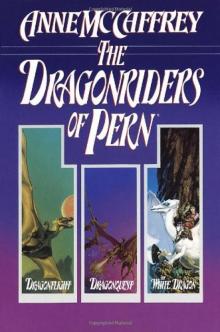 The Dragonriders of Pern
The Dragonriders of Pern An Exchange of Gifts
An Exchange of Gifts The Ship Who Sang
The Ship Who Sang Sky Dragons: Dragonriders of Pern
Sky Dragons: Dragonriders of Pern Maelstrom
Maelstrom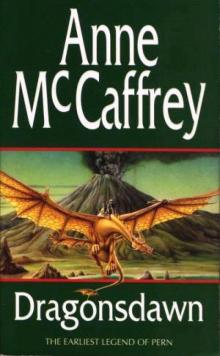 Dragons Dawn
Dragons Dawn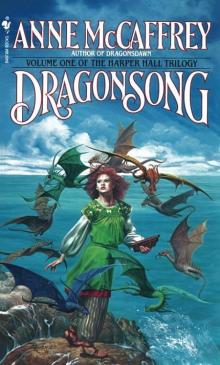 Dragon Song
Dragon Song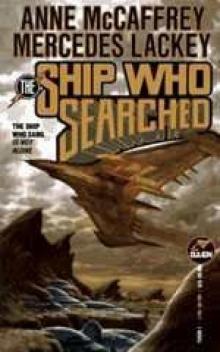 The Ship Who Searched b-3
The Ship Who Searched b-3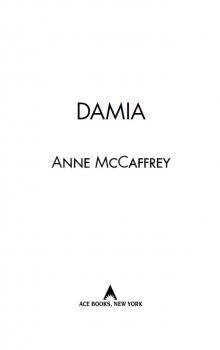 Damia
Damia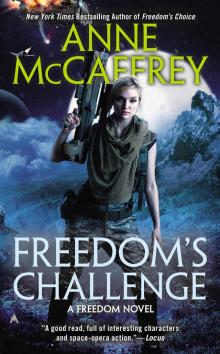 Freedom's Challenge
Freedom's Challenge